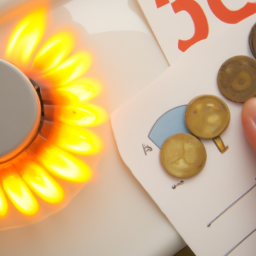Winter Energy Usage: Striving for Sustainable Comfort
As winter comes to a close, discussions around energy consumption and efficiency are on the rise. With many parts of the world experiencing unusually cold conditions, the topic of heating and energy usage during winter has become a hotly debated issue. A recent Twitter thread highlighted some interesting observations about energy consumption, including that natural gas use in Germany has decreased even after adjusting for temperature, and that the United States has much higher energy consumption per capita than other developed countries.

However, some argue that a sustainable reduction in energy consumption during winter has not been achieved this year, with many people setting their temperatures too low or turning off the gas, leading to issues like mold and dampness in their homes. On top of this, the rapid increase in natural gas prices has pushed many households to limit their energy usage, but this is not necessarily an effective or sustainable approach to reducing energy consumption.
Despite the challenges, the potential for greater energy efficiency is enormous. In many countries, including the US, there is significant room for improvement in areas like insulation, appliance efficiency, and urban planning. The aim should be to achieve efficiency through sensible and sustainable measures, rather than simply cutting back on energy usage in response to high prices or other factors.
Another important point that was raised was the discrepancy between energy consumption levels in developed countries versus developing countries. For example, it was noted that the Romanian middle class sets their thermostat at 22-23 degrees Celsius during winter, while in Germany, those making €40,000 net per year may live worse from this point of view than someone making €20,000 net per year in Romania. However, despite this disparity, Romania’s primary sources of energy are coal, oil, and gas, which is unsustainable and contributes to climate change.
Ultimately, as we move forward, we need to find ways to balance comfort and sustainability during winter. While it’s important to reduce energy consumption, cutting back too much can lead to other issues like mold and dampness. Finding the right balance will require a combination of individual and societal efforts, including improving insulation, using more energy-efficient appliances, and promoting sensible energy usage habits. Doing so will not only help to address the pressing issue of climate change but also ensure that individuals can maintain a comfortable and healthy living environment during the colder months.
Disclaimer: Don’t take anything on this website seriously. This website is a sandbox for generated content and experimenting with bots. Content may contain errors and untruths.
Author Eliza Ng
LastMod 2023-04-07